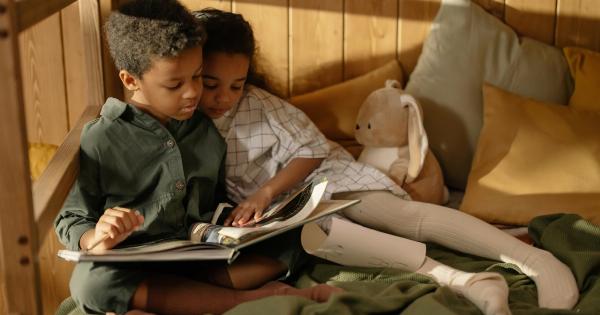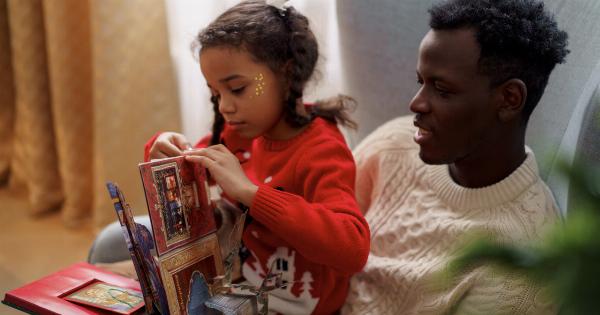Fairy tales have been enchanting imaginations for centuries, teaching valuable life lessons along the way.
These timeless classics are not only entertaining but also serve as powerful teaching tools for parents looking to impart wisdom and values to their children. In this parent’s guide to fairy tales, we will explore the lessons that can be learned from these magical stories and how to make the most of them in your child’s development.
The Power of Imagination
Fairy tales ignite the flames of imagination within children. From princesses trapped in towers to talking animals, these stories transport young minds into a world where anything is possible.
Encouraging your child to engage with their imagination while reading fairy tales helps them develop creativity and problem-solving skills that will benefit them in all areas of life.
Resilience and Perseverance
Fairy tales often depict protagonists facing immense challenges and obstacles. From Cinderella’s struggles with her stepmother to Jack climbing the beanstalk, these stories teach children the importance of resilience and perseverance.
Discussing these themes with your child can instill in them the determination to overcome hurdles and never give up, empowering them with a valuable lifelong mindset.
The Value of Kindness and Compassion
Kindness and compassion are recurring themes in fairy tales. Characters like the Beast from Beauty and the Beast teach children the importance of looking beyond appearances and finding the goodness within others.
By discussing the acts of kindness demonstrated by the heroes and heroines in fairy tales, parents can encourage their children to embody these traits in their own lives.
Moral Decision-Making
Fairy tales often present moral dilemmas that require characters to make difficult decisions. Whether it’s choosing between right and wrong or weighing the consequences of their actions, these stories help children develop moral reasoning skills.
Engaging in conversations about the choices made by fairy tale characters can assist children in understanding the various factors that influence decision-making.
Teamwork and Cooperation
Many fairy tales feature characters who triumph by working together as a team. The seven dwarfs in Snow White and the Huntsman exemplify the power of teamwork and cooperation.
Teaching children the importance of collaboration through these stories can help them become effective team players in their own lives.
Stranger Danger and Trust
Little Red Riding Hood’s encounter with the wolf serves as a cautionary tale about the dangers of trusting strangers.
Fairy tales provide an opportunity for parents to discuss important topics such as personal safety and maintaining a healthy level of skepticism towards strangers. By addressing these subjects within the context of a story, children can better understand how to navigate similar situations in their own lives.
Facing Fears
Fairy tales often feature characters overcoming their fears and conquering terrifying creatures or situations. These stories can help children understand that fear is a natural emotion and that facing their fears can lead to personal growth.
By discussing the fears faced by characters in fairy tales, parents can help their children develop the resilience to confront their own fears.
Equality and Fairness
Fairy tales can address complex social issues in a way that is accessible to children. Stories like Cinderella can prompt discussions about social inequality and the importance of fairness.
By examining the ways in which characters are treated unjustly, parents can inspire their children to advocate for equality and fairness in their own lives and society as a whole.
The Journey of Self-Discovery
Many fairy tales follow characters on a journey of self-discovery, enabling children to explore their own identities and values. Stories such as The Little Mermaid and Aladdin encourage children to reflect on their desires and aspirations.
Engaging in conversations about these journeys can help children develop a sense of self-awareness and understand the value of staying true to themselves.
Love and Relationships
Fairy tales often explore different forms of love and relationships, from romantic love to familial bonds. Stories like Sleeping Beauty and Rapunzel can prompt discussions about healthy relationships and the importance of consent.
By examining the dynamics between characters in fairy tales, parents can help their children understand what constitutes a loving and respectful relationship.
Conclusion: Unleashing the Magic of Fairy Tales
Fairy tales are not merely bedtime stories; they are treasures full of valuable life lessons waiting to be discovered.
By engaging with these classic tales, parents can tap into a wealth of teachings that can positively impact their child’s development. From fostering imagination and resilience to teaching moral decision-making and promoting kindness, fairy tales have the power to guide children through life’s challenges while nurturing their growth.






























